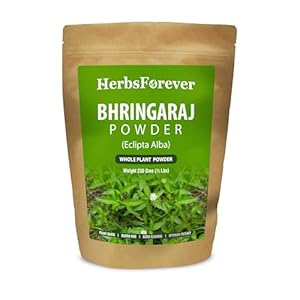
Have you ever finished a meal only to feel your stomach swell like a balloon? That uncomfortable bloating, paired with relentless rumbling and the urge to loosen your clothes, is a universal struggle. But this isn’t a minor inconvenience; it’s a daily drain on your energy, confidence, and joy.
For Ayurveda, problems like bloating and gas are taken seriously. They appear as rapid indications from your body that your digestive fire may be losing strength. Should the fire in your body weaken, the last-stage meals remain undigested and become known as Ama, which causes a buildup in your system, disrupts Vata Dosha and makes you feel tired, clogged and bloated. Still, maybe the solution comes from dipping into your kitchen’s history and making better choices.
How Does Bloating Feel Like?
Bloating is not just a physical sensation—it is an emotional weight. Imagine sitting at your desk after lunch, your abdomen taut and swollen, as if someone pumped air into your intestines. You might experience sharp cramps, excessive burping, or a nagging sense of fullness that lingers for hours. For some, it is accompanied by audible gas or a restless urge to lie down. Ayurveda teaches us that these symptoms are more than random discomfort; they are clues to deeper imbalances.
The Root Causes of Gas and Bloating
To address bloating, we must first understand its origins. According to Ayurveda, poor digestion (Ajirna) is the primary culprit. When Agni is weak, food is not adequately broken down, leading to Ama accumulation. This stagnation disrupts Vata Dosha, which governs the downward flow of gas (Apana Vata). Trapped gas then distends the abdomen, causing pain and discomfort.
Common Causes in Modern Life:

- Overeating (Atyashana): Consuming portions larger than your digestive capacity overwhelms Agni, leaving food undigested.
- Incompatible Food Combinations (Viruddhahara): Pairing foods with opposing qualities (e.g., dairy with fruit or beans with cheese) confuses digestion, generating gas.
- Stress: Mental strain redirects energy from digestion, weakening Agni as severely as junk food.
- Gas-Inducing Foods: Legumes (chana, rajma) and cruciferous veggies (cabbage, cauliflower) ferment in a weak gut, while raw salads cool Agni—triggering bloat.
- Modern Habits: Eating quickly, multitasking during meals, or gulping fizzy drinks traps air in the intestines, creating pressure inside your stomach resulting in bloated stomach.
These factors create a perfect storm for bloating. However, Ayurveda does not just diagnose—it offers remedies rooted in nature’s pantry.
How Do You Stop Bloating? Explore 7 Ayurvedic Foods That Naturally Reduce Gas and Bloating
1. Shunthi (Dry Ginger Powder):
Dry ginger, or Shunthi, is Ayurveda’s answer to sluggish digestion. Its deepana (fire-kindling) properties stoke Agni, melting away Ama and easing gas. Shunthi is lighter and more concentrated than fresh ginger, making it ideal for Vata imbalances.
How to Use:
- Stir ¼ tsp into warm water post-meals.
- Add to soups or khichari for a digestive boost.
2. Fennel Seeds (Saunf):
Fennel seeds are a post-meal ritual across India—and for good reason. Their sweet, cooling nature pacifies Vata, relaxes intestinal spasms, and accelerates the breakdown of stubborn foods.
How to Use:
- Chew 1–2 tsp roasted fennel after eating.
- Steep in hot water for a calming tea.
3. Hing (Asafoetida):
Hing’s pungent aroma might be intense, but its ability to dismantle gas is unmatched. A natural carminative, it clears blockages in the gut and strengthens Agni, making it a staple in lentil dishes.
How to Use:
- Mix a pinch in warm water.
- Add to tadka for dals or stir-fries.
4. Ajwain + Black Salt:
Ajwain (carom seeds) are like a broom for the intestines—sweeping out trapped gas and stimulating digestion. Paired with mineral-rich black salt, this combo tackles bloating at its source.
How to Use:
- Chew ½ tsp Ajwain + a pinch of black salt post-meals.
- Brew into tea with fennel for added relief.
5. Buttermilk + Roasted Cumin:
When spiced correctly, buttermilk becomes a probiotic elixir. Roasted cumin kindles Agni, while black salt enhances nutrient absorption, making this a post-meal ritual for gut health.
How to Use:
- Blend ½ tsp roasted cumin powder + black salt into fresh buttermilk.
6. Khichari:
- Moong dal, rice, ghee, and spices come together in khichari—a light, nourishing dish that’s gentle on the gut. It is often prescribed during Ayurvedic cleanses to reset digestion.
How to Use:
- Cook with cumin, ginger, and rock salt for maximum benefits.
7. Haritaki:
- This ancient herb cleanses Ama, regulates bowel movements, and prevents overnight gas buildup. When fried in ghee, it becomes a potent Vata balancer.
How to Use:
- Consume a ghee-fried Haritaki fruit with salt before bed.
What to Avoid (Based on Your Dosha):
Ayurveda tailors diets to your dominant Dosha:
- Vata: Reduce cold salads, beans, and carbonated drinks (increase warm, moist foods).
- Pitta: Skip spicy, sour, or fried items (opt for cooling herbs like fennel).
- Kapha: Minimise dairy, processed sugars, and excess salt (choose light, spicy meals).
Uncertain of your Dosha? [Click Here]
Lifestyle Tweaks for Lasting Relief:
- Mindful Eating: Chew slowly, eat without screens, and pause mid-bite to breathe.
- Yoga & Exercise: Gentle twists (e.g., Pavanamuktasana) stimulate digestion; daily walks prevent stagnation.
- Dinacharya (Daily Rhythm): Eat largest meals at noon when Agni peaks; fast for 13 hours overnight.
Boost Results with Supplements:
- Triphala Rasayana: This blend of Haritaki, Bibhitaki, and Amalaki cleanses Ama overnight. Take 1 tsp with warm water before bed.
- Digestive Teas: Try Maharishi Ayurveda’s [vata, pitta and kapha tea] post-meals for Agni support.
- Dizomap: This blend of 6 herbs helps balance pachaka, samana & kledaka kapha. Helping in regulating bowel movement and relieving constipation.
Additional Ayurvedic Tips to Prevent Bloating

-
Sip Digestive Tea: Combine fennel, ajwain, and dry ginger for a midday brew.
-
Practice Mindful Eating: Chew slowly, avoid screens, and eat in a calm environment.
- Follow Dinacharya: Align meals with sunrise/sunset to sync with your body’s natural rhythms.
Conclusion:
Gas and bloating need not be a life sentence. By embracing these seven foods, you are not just soothing symptoms—you are reigniting Agni, clearing Ama, and restoring balance to Vata. As the Charaka Samhita teaches,
“When digestion is strong, health blossoms.”
For those seeking a structured solution, Maharishi Ayurveda Triphala Rasayana beautifully complements these dietary changes. Triphala, a blend of Haritaki, Bibhitaki, and Amalaki, gently detoxifies the gut, enhances digestion, and prevents gas—making it ideal for those struggling with chronic bloating. Its alignment with the herbs discussed here, particularly Haritaki, ensures a holistic approach to gut health.
Remember, every meal is an opportunity to heal. Eat warm, mindfully, and let Ayurveda guide you back to lightness.
Read this blog: How to treat GERD with Ayurveda?
Trending Products











